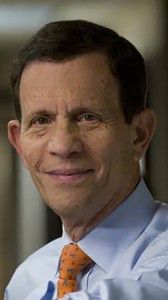
As Massachusetts politicians begin to focus on the approaching November 2014 election, those who support adding questions on the ballot are preparing their petitions as the deadline to do so nears on Nov. 20.
The petitions must be certified by Massachusetts city and town halls by Wednesday before submitting them to Mass. Secretary of State William Galvin’s office on Dec. 4. The proposals, which can be created by any individual, group or company, require at least 69,000 signatures to go to the legislature, where legislators have until May 2014 to take action. If the proposals are approved, they will appear on the ballot for November 2014.
“When that deadline in May passes, if the legislature fails to act upon it, then the petitioners can get additional petition forms and go out to collect another round of signatures and put the question on the ballot for next November,” said Brian McNiff, spokesman for Galvin’s office.
If the supporters of a petition can get the required number of signatures in the second round, McNiff said the proposed question will be put on the 2014 Massachusetts ballot.
The questions on the ballot will go alongside residents choosing the successor to Mass. Gov. Deval Patrick. Mass. Attorney Gen. Martha Coakley and Mass. Treasurer Steve Grossman have already kicked off their campaigns and released videos last week that included encouragement for voters to start thinking about the election as well as some of the ballot proposals.
Lewis Finfer, director of the Massachusetts Communities Action Network and a member of the steering committee for Raise Up Massachusetts, helped propose two different questions for the ballot regarding workers’ benefits. He said collecting signatures is a large project and an important part of American democracy.

“It’s really important that our state allows this option,” he said. “A number of states do have referendum options, but not all states, so it’s good that we do have this option for this kind of direct democracy, for people to have the right to vote on something.”
Joe Ureneck, 62, of Dorchester, who filed three bills relating to civilian and military rights, said he is concerned with the difficulty of getting a proposed question put on a ballot.
“It’s extremely onerous to get questions like this on the ballot,” he said. “It should be not so onerous for people who want to get these questions put before the public. So I would say that it’s not really a fair system.”
Janet Domenitz, executive director at the Massachusetts Public Interest Research Group, proposed a question to update a law known as the Bottle Bill. The update would extend the 5-cent bottle return for non-carbonated drinks. She said the complicated nature of the proposal process makes it a last resort for citizens who want to have a voice.
“The process is unduly cumbersome,” she said. “It’s like a release valve. I don’t think it’s for every single bill, fresh out of the gate, but I think it’s an important tool that we have for the citizens to use when we need it.”
Several residents said they were concerned that it takes so many signatures for their voices to be heard on a ballot.
“Because some people have good ideas and when they can present them, things get done,” said Ben Tuttle, 25, a software professional from Allston. “Depending on how many signatures they need … it does not give people a voice. Not at all.”
Nadia Saint- Louis, 25, of Boston, said she never considered writing her own petition, but it is an important function of the government.
“It’s definitely important because there’s no one taking control of the whole government,” she said. “We can all have our voice. If we feel like something is wrong, we’ll be able to show that we care about what’s going on.”
Mariama Camara, 26, of Mattapan, said she feels as though government officials see what residents want to change, but are choosing to ignore them, leading to residents having to create a ballot initiative.
“When you’re not working in the government, you see things around you that need to be changed [that government officials do not],” she said. “Either they don’t know or they pretend not to know. But there are a lot of things that need to be changed.”
This is an account occasionally used by the Daily Free Press editors to post archived posts from previous iterations of the site or otherwise for special circumstance publications. See authorship info on the byline at the top of the page.



